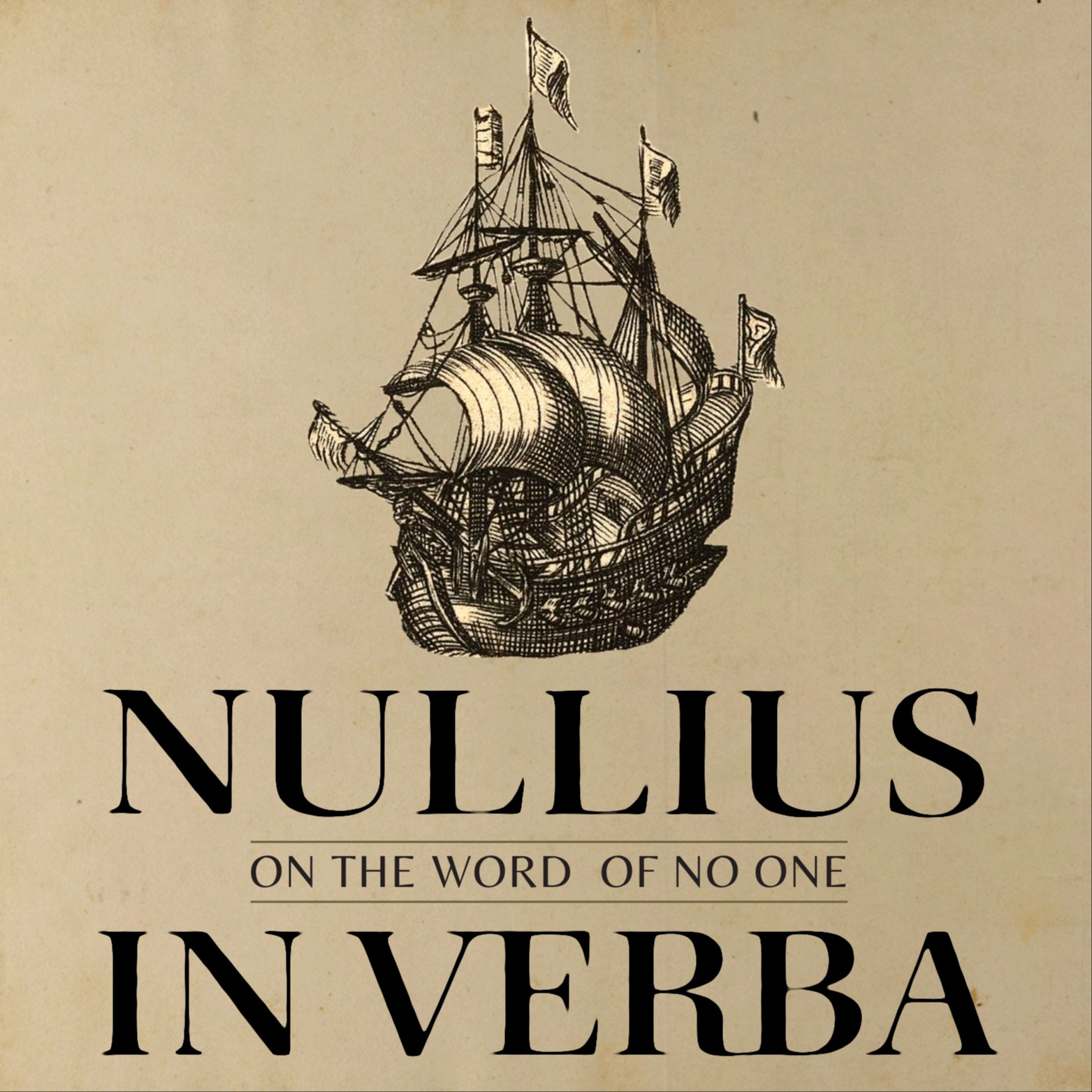

Nullius in Verba
Smriti Mehta and Daniël Lakens
Nullius in Verba is a podcast about science—what it is and what it could be. It is hosted by Smriti Mehta from UC Berkeley and Daniël Lakens from Eindhoven University of Technology. Our logo is an homage to the title page of Novum Organum, which depicts a galleon passing between the mythical Pillars of Hercules on either side of the Strait of Gibraltar. The title of the podcast comes from the motto of the Royal Society, set in typeface Kepler by Robert Slimbach. Our theme song is Newton’s Cradle by Grandbrothers.
Episodes
Mentioned books

20 snips
Jan 2, 2026 • 48min
Episode 72: Scientismus - I
The discussion tackles scientism, exploring whether it's too much to claim science as the sole way of knowing. They delve into the historical evolution of the term and its varying interpretations. Key debates include the ability of science to answer moral questions and the distinction between disciplines in producing knowledge. The duo also critiques reliance on quantification in social research, favoring literary insights for deep understanding. Ultimately, they weigh the roles of empirical science versus philosophical inquiry in grasping complex human experiences.

14 snips
Nov 29, 2025 • 54min
Episode 71: Commentarius Scientificus: Fraus?
The discussion explores the controversial notion that scientific papers might misrepresent reality. Medawar's ideas on starting with a discussion rather than hypotheses spark a debate. The hosts tackle the origins of ideas, weighing hunches against derived theories. They delve into the nature of hypotheses and predictions, using Newton and Einstein as examples. Everyday inspirations, like Marie Kondo, raise questions on transparency in reporting research origins, while the implications of inductive versus deductive reasoning challenge conventional thinking.

4 snips
Nov 21, 2025 • 16min
Prologus 71: Is the Scientific Paper A Fraud (P. Medawar)
Medawar, P. (1999). Is the scientific paper a fraud? Communicating Science: Professional Contexts, 27–31.

7 snips
Nov 14, 2025 • 1h 16min
Episode 70: Scientia Tacita
Dive into the intriguing world of tacit knowledge as the hosts unravel its hidden layers in science. From how we internalize skills like riding a bike to the unseen impacts on experiment replication, they explore why this concept has lingered in obscurity. Hear about concealed methods, relational knowledge, and the influence of technology in bridging gaps. The discussion also touches on sociological aspects within academia, mentorship dynamics, and the role of unspoken rules in fostering success. A thought-provoking journey into what we know but struggle to express!

10 snips
Oct 31, 2025 • 46min
Episode 69: Fraus P-Valoris - II
Dive into the intriguing world of p-hacking! Discover how naming this practice raised awareness about replication failures in research. The conversation explores whether public accusations have driven positive changes in research norms. Challenges of interpreting p-value distributions and biases affecting publication incentives are dissected. The hosts suggest that transparency and pre-registration could combat p-hacking. They also discuss the role of compelling storytelling in shaping research outcomes, emphasizing the need for integrity in scientific pursuits.

Oct 10, 2025 • 43min
Episode 68: Fraus P-Valoris - I
This engaging discussion dives into the intriguing world of p-hacking and its many aliases like data dredging. The hosts explore how flexible analytics can lead to inflated error rates and why terminology matters in research ethics. They debate the fine line between questionable practices and outright fraud, analyzing the personal sensitivities surrounding such accusations. Listeners will learn about common p-hacking strategies, the implications of analysis choices, and the challenge researchers face in clarifying past behaviors. Tune in for a thought-provoking journey!

Sep 28, 2025 • 1h 1min
Episode 67: Investigatio Inhonesta
In this episode, we discuss unethical research. What are some examples of egregious violations of ethical guidelines? What are some more subtle ways in which research can be unethical?And what should we do with results obtained through unethical research?
Shownotes
The Nuremberg Code
The Declaration of Helsinki
Three Identical Strangers
The ethical implications of the "Monster Study"
'Little Albert' regains his identity
Caplan, A. L. (2021). How should we regard information gathered in Nazi experiments?. AMA Journal of Ethics, 23(1), 55-58.
Is it right to use Nazi research if it can save lives?

Sep 11, 2025 • 1h 3min
Episode 66: Psychologia Controversiae
Boring, E. G. (1929). The psychology of controversy. Psychological Review, 36(2), 97–121. https://doi.org/10.1037/h0072273

Sep 5, 2025 • 1h 5min
Prologus 66: The Psychology of Controversy (E. G. Boring)
Boring, E. G. (1929). The psychology of controversy. Psychological Review, 36(2), 97–121. https://doi.org/10.1037/h0072273

Aug 29, 2025 • 56min
Episode 65: Scientia de Scientia - II
In the second episode on metascience, we discuss the benefits of metascientific study according to Mario Bunge, some key milestones in sociology, psychology, and anthropology of science, and whether there should be a science of the science of science.
Shownotes
Galton, F. (1874). English men of science: Their nature and nurture. McMillian & Co. https://archive.org/details/englishmenofscie00galtuoft
Latour, B. & Woolgar, S. (1979). Laboratory life: The social construction of scientific facts. Sage Publications.
Candolle, A. de (with Fisher - University of Toronto). (1873). Histoire des sciences et des savants depuis deux siècles; suivie d’autres études sur des sujets scientifiques, en particulier sur la sélection dans l’espèce humaine. Genève, Georg. http://archive.org/details/histoiredesscie00cand
Vaesen, K. (2021). French Neopositivism and the Logic, Psychology, and Sociology of Scientific Discovery. HOPOS: The Journal of the International Society for the History of Philosophy of Science, 11(1), 183–200. https://doi.org/10.1086/712934


